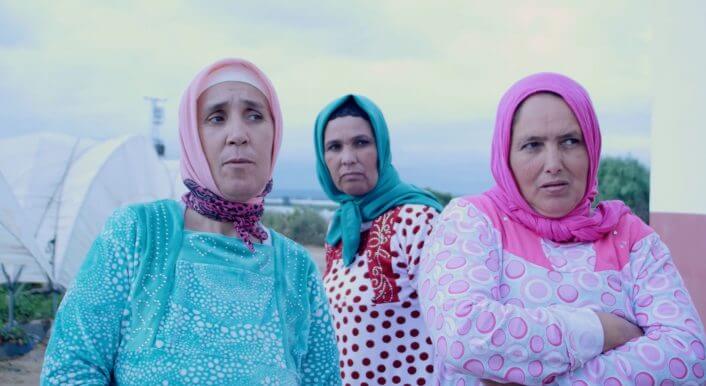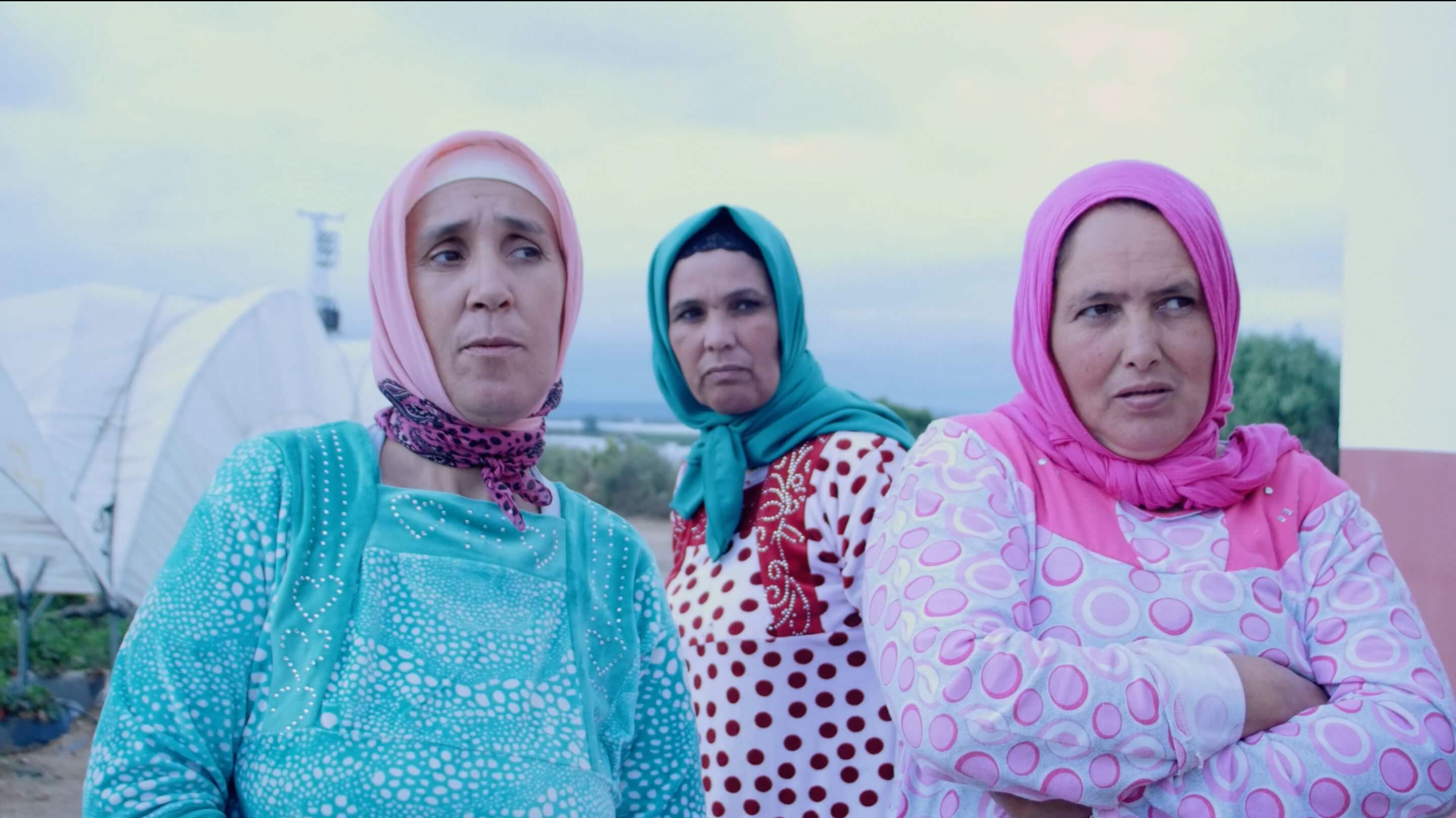
In the hands of the mafia
Italy is a leading exporter of tomatoes, raking in billions of euros every year. The workers in the fields earn very little. Sexual abuse of female workers is widespread. Compared to Spain and Morocco, their situation is worse as the mafia is holding a tight grip on the region’s labour.
Part 1: Rape in the fields
Part 2: The dark side of Morocco’s booming agricultural exports
Part 3: In the hands of the mafia
This investigation is a cooperation with RTL Nachtjournal and BuzzFeed News.
In Italy labor exploitation is linked to criminal organisations, such as the Mafia. Illegal intermediaries – so called caporali — recruit cheap labour for companies and control workers. They charge them for transportations and accommodations, in case the workers are immigrants.
It is November 2016, in the dark office of Maria Viniero, a unionist at FLAI-CGIL, in the small town of Sanmichele di Bari, Apulia. Rosa and Davide, two married workers, say that it is impossible to rebel against sexual harassment and exploitation because of the intermediaries linked to criminal organizations. „They control everything. They call us with a number, not with our name. They tell it openly to women: if you want to work here you have to behave in this way. There are people who also collected proofs, but they cannot use them because they have families.“
Later in the day in the same office, Annalisa, mother of three, tells her story. Annalisa’s name, like the names of all the affected women in this investigation, was changed, as she fears for her safety. She worked in the field since she was 17 years old, picking tomatoes, olives, grapes and cherries. During her last job she was sexually harassed by her boss, who then fired her because of her refusal. Annalisa reported her story to the unionist Maria Viniero, but she doesn’t know how to prove it in a trial. She did not say anything to her husband. „I’m ashamed and I’m scared of his reaction.“
“Many people want to work and there are not enough places for everyone“, explains Viniero. „A complaint is enough to be fired. For women often rejecting advances means losing the job. They come to tell me about them, but then they do not want to press legal charges, because they are very difficult to prove.“
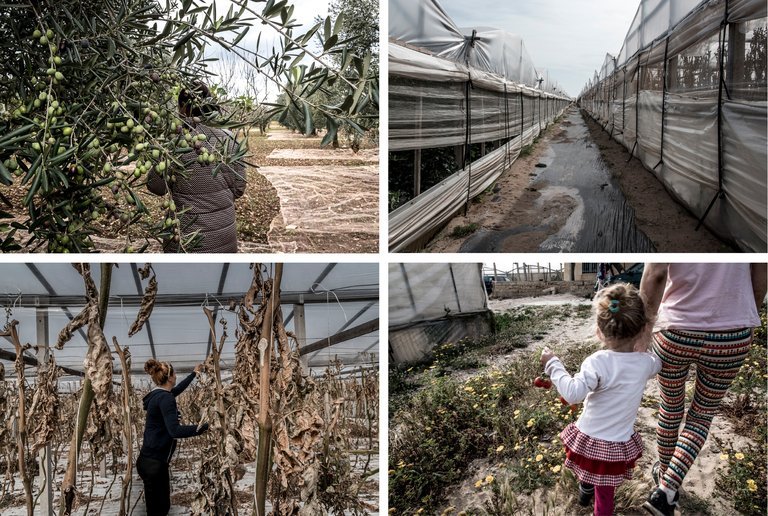
Annalisa (top left): „He came close, he put his hand on me, he told me bad words. He put his hands here, there and here. I told him to stop, I told him no, and he shouted at me not to come anymore to work.“
Stefania Prandi
In Apulia around 40,000 Italian women and 18.000 migrants, are irregularly employed in the agricultural sector, according to the Italian trade union FLAI-CGIL. Labor exploitation is a big issue with around 400,000 workers are illegally employed and exploited in intensive farming across the country and women making up 70 percent of the workforce in some areas of Apulia and Sicily. Italy is the world’s second largest producer of processed tomato products – second to the United States — exporting more than 5 million tonnes, worth more than 3,2 billion euros in 2016, mainly to Germany, Britain, France, Japan and Russia.
Women work twelve hours a day, and earn as little as 25 to 30 euros, so are paid less than their male counterparts for the same tasks. Unequal payment is not the end of the prejudice. They are discriminated against and harassed. “I don’t want to say seven out of ten, but for sure five employers out of ten in our region harass female workers in the fields. More with foreigners than with Italians, because for them it is almost a right, one of today’s ius primae noctis “, said Rosaria Capozzi, director of Progetto Aquilone in 2016, an organisation supporting women against violence in Foggia, Apulia.
The other region where tomatoes come from is Sicily. The countryside around Vittoria, a town in the province of Ragusa, is one of the main areas for cherry tomato production in Italy. Up to 5,000 Romanian women work there as tomato pickers.
Many migrant tomato pickers live in storehouses and shacks in Vittoria. If there is an inspection, they have to run away, because this housing is illegal and they can be fined.
The air in the storehouse where Elena, a tomato picker from Romania lives, is stuffy. Bare clay makes the floors and plastic sheets serve as a ceiling. In the run-down bathroom crates of pesticides for the surrounding fields are stored.
Seated at the table, she stares out of the window for a long moment, exhausted. She just arrived from the field, wearing an old tracksuit. Finally she looks up, with a grimace on her face: „My former boss raped me for two years.“ Elena used to live in a shack in the countryside, far away from Vittoria town center, where her boss abused her at night. „He showed me a gun. If I refused to have sex with him, he wouldn’t give me drinking water for my children and they would have to drink water containing herbicide.“
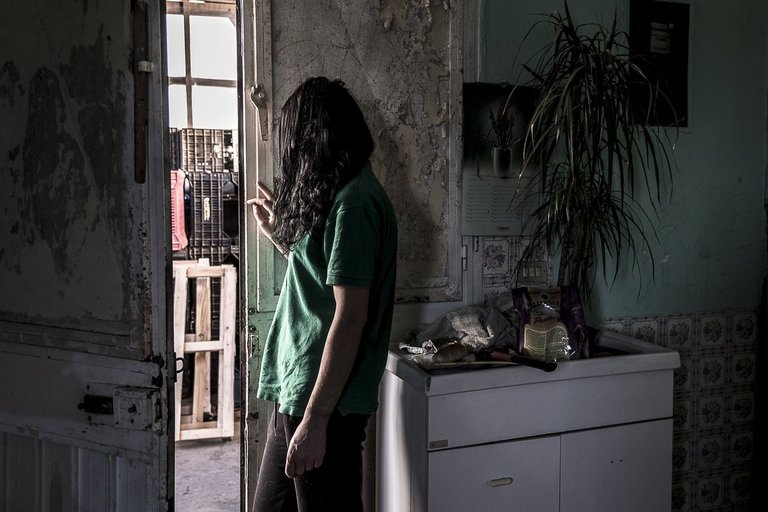
Elena is 33 years old. She has two children. Her husband was an alcoholic who used to beat her. After his suicide, Elena decided to move to Italy in search of a job.
Stefania Prandi
At the time Elena had no car and her abuser took her two children to school every morning. He was a married man of 60 years and had two sons himself. „One day, helped by a friend, I quit“, Elena says. „I reported the rape and the abuse to the authorities and I was taken to a special place where I couldn’t work. After four months, I decided to go back to Vittoria and find a new job.“ Yet, no legal action was taken against her former boss.
Emanuele Bellassai, a longtime social worker who has worked with different local organizations, testified in her report. When he first met Elena he was helping Romanian workers, driving them to the doctor, the hospital or the grocery store. „It is almost impossible to report the abuses to law enforcement“, said Bellassai. „Women workers are not easily believed and — above all — it is not possible to gather sufficient evidence for a trial.”

Two female workers in their houses, which often are just concrete walls with a plastic roof.
Stefania Prandi
Someone who never accepted the way in which women are treated is the priest Don Beniamino Sacco. He was one of the first people to raise awareness about sexual harassment. Sacco lives in Vittoria, in a building he shares with over thirty immigrants. The priest has led demonstrations against the Mafia 30 years ago. In recent years he has committed to help the many migrants coming to the region.
It was during the holy mass, that Sacco would start to speak about sexual abuses in the greenhouses. „Sicilian married men were coming to the church, bringing to me Romanian pregnant women“, he says. „They used to tell me that they found the girls along the street. I knew it was a lie.“ Those men, he knew, were the employers of the women and had a family at home. Sacco addressed them directly in his Sunday preaching. „My sermons were not welcomed, but I didn’t stop“, he says. As a consequence, men stopped taking women to Don Sacco.
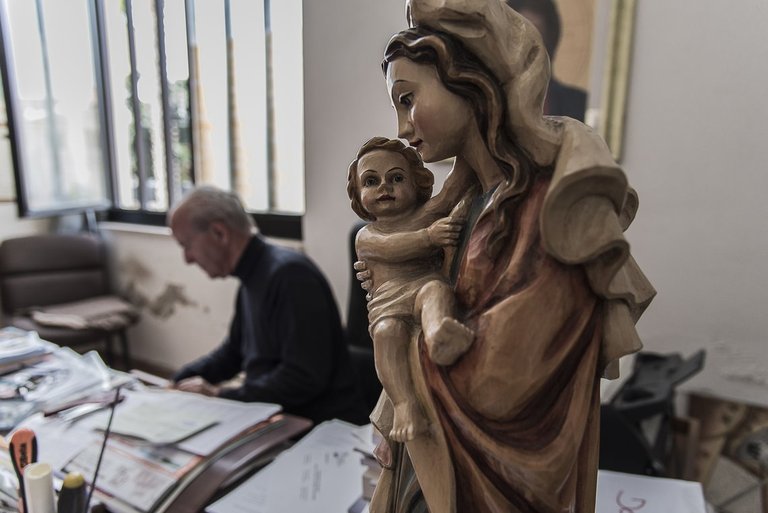
“I called the fields the places of the ‘feasts’. During the day women have to work and in the evening they have to do everything. This is something hidden, but it comes in handy to a lot of men.“
Stefania Prandi
The fields of the „feasts“
But the problem is far from being solved. And just like in Spain [link chapter 1] one of the indicators is the abortion rate. In an article from June 5, 2017 the Italian magazine Espresso wrote that abortions in Vittoria are a lot higher than in similar towns in other regions of Italy. And these official figures are likely to be only the tip of the iceberg, as they do not account for women who use illegal methods to abort or return to Romania to abort.
In November 2016, Italy introduced a new law against labour exploitation in agriculture. Anyone who recruits workers from a third party which is severely exploiting workers, or who illegally recruits workers can be punished with prison time of up to 6 years or be fined up to 1000 Euros per worker. In case violence, threats or intimidation are used in the employment process, prison time can rise up to 8 years and fines up to 2000 Euros per worker.
The law was crucial in the trial for Paola Clemente. Clemente was a worker who died in 2015 of heart attack in the burning summer heat, while picking grapes. In February 2017, authorities arrested six people: the owner of the bus company, that brought Clemente and her colleagues to work, his wife, three staff members from two local agencies, as well as a female supervisor at the farm. The allegations against them were labour exploitation, fraud and illicit brokering. The trial has not yet started.
Unionists are optimistic about the new law because other investigations were initiated. Workers however remain skeptical. „I don’t think this law helps for real“, says Davide, who stopped working in the field two years ago after an accident, shaking his head. His wife is still working on tomatoes; she is the breadwinner now. „If you want to report sexual harassment or a rape you need to prove it.“ But in the fields there would be no solidarity and no witnesses.
He says: „If you need money, rebelling is almost impossible.“
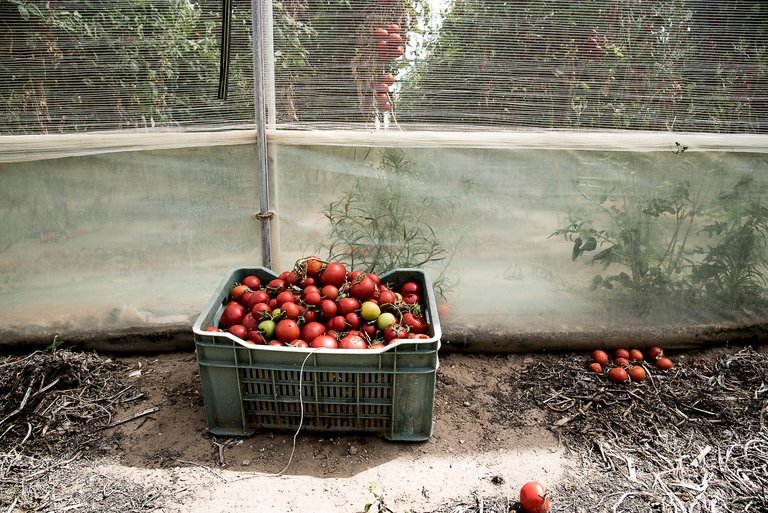
Im Jahr 2016 gingen 200 Landwirte in Bari gegen das Gesetz auf die Straße, weil sie der Meinung sind, dass es ihnen „untragbare Bedingungen auferlegt“.
Stefania Prandi
This investigation was funded by crowdfunding.correctiv.org. We thank the supporters for their contribution:
Elisabeth Ferrari, Mari Stephani, Jochem Theis, Uli Kindermann, Renata Piccolo, Federica Guerra, Wolfgang Weidtmann, Rene Seyedi, Michael Rasenberger, Gerhard Dimmling-Jung, Marialuisa Parodi, Vanessa Boysen, Karoline Mikus, Margit Gatzke, Monika Pater, Isabel Stettin, Marcus Beisswanger, Edith Luschmann, Valentina Lanuara, Krsto Lazarevic, Birgit Nieskens, Philipp Burgmer, Nicole Graaf, Christoph Wunnerlich, Patrick Bauer, Philipp Kayser, Emma Schiavon, Vanessa Carboni, Silvia Corti, Raffael Vogler
This investigation was also funded by the Swiss Volkart Foundation.

